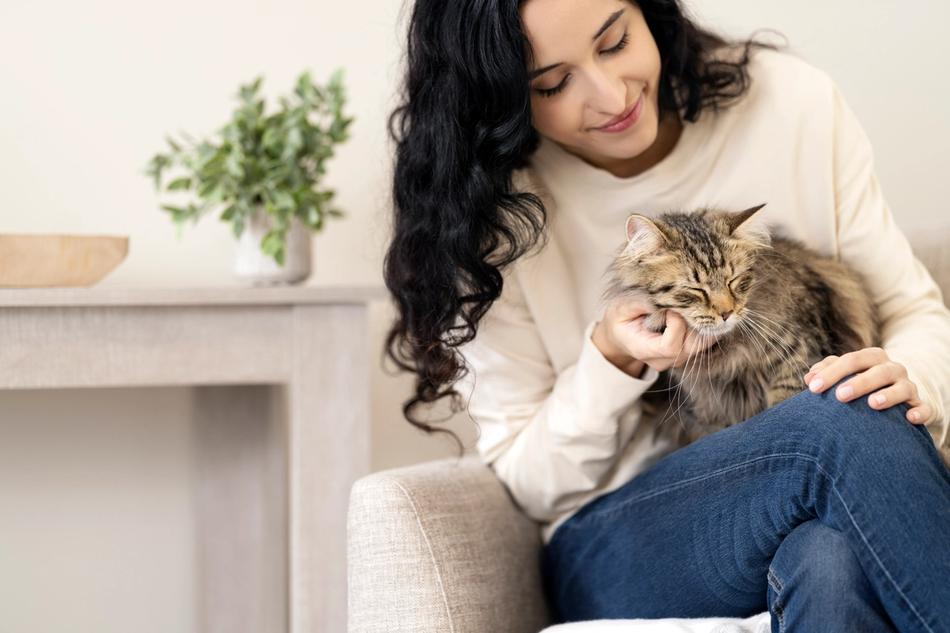
May 13, 2024
PetSafe® Expert
PetSafe® Guest
Cat Pooping Outside Litter Box: Understanding Litter Box Issues
Has your furry friend started to avoid their litter box, choosing surprising spots around the house for their bathroom breaks instead? You're not alone. This common issue can frustrate many pet parents, but fear not—solutions are within reach! We understand how crucial it is for both pets and their families to live in harmony. This guide will walk you through understanding why your cat might be avoiding their litter box and offer tips to help restore your home to a peaceful state.
Reasons Why Cats Avoid the Litter Box
Health Issues
When your cat starts avoiding their litter box, one of the first things to consider is their health. Cats tend to hide their pain or discomfort, so any change in their usual habits should prompt a visit to the vet. Conditions like urinary tract infections, kidney disease, or arthritis can make using the litter box painful or stressful, which might deter them from using it. Always consult your veterinarian if you notice any changes in your cat's litter box behavior to identify and treat any potential medical issues.
Environmental Stressors
Cats are creatures of habit and even minor changes in their environment can unsettle them. Relocating the litter box, switching to a new type of litter, or changes in household dynamics (like the arrival of a new pet or baby) can make your cat feel anxious. These stressors may lead them to seek out other places where they feel more secure. Ensure the litter box is in a quiet, low-traffic area where your cat feels safe and protected.
Behavioral Factors
Sometimes, the issue isn’t physical but behavioral. Previous negative experiences associated with the litter box, such as being startled while using it or a box that isn’t cleaned often enough, can create negative associations. Cats prefer a clean environment, and a dirty litter box might be just unpleasant for them as it is for you. Regular cleaning and maintenance of the litter box are crucial. For those seeking a hassle-free option, consider the ScoopFree® Crystal Smart Self-Cleaning Litter Box, which can help keep the area inviting and odor-free.

How to Encourage Proper Litter Box Use
Choosing the Right Litter Box
The type and placement of the litter box can significantly impact your cat's willingness to use it. Cats have different preferences; some may prefer an open box for easy access, while others might like a covered box for more privacy. It's important to experiment with different styles to see what your cat prefers. Ensure the box is large enough for your cat to move around comfortably and is placed in a quiet, accessible location. Multiple cats require multiple litter boxes to prevent territorial disputes—ideally, one per cat plus an extra. For more ideas on the types of litter boxes, check out our selection of Litter Boxes.
Litter Box Maintenance
Keeping the litter box clean is non-negotiable. Scoop waste daily and change the litter regularly to prevent odors and buildup, which can deter your cat from using the box. For those looking for the best in litter maintenance, visit our Cat Litter section for a variety of options that can help keep the box fresh and inviting.
Environmental Enrichment
Reducing stress in your cat’s environment is a crucial step towards encouraging proper litter box use. Provide plenty of playtime and interactive toys to keep your cat engaged and relaxed. Ensure their environment is stable, with minimal loud noises or disruptions that could cause anxiety. Sometimes, simply providing a safe, cozy space near the litter box can make a big difference in how they perceive its safety and usability.
When to Consult a Vet
If you've tried improving the litter box environment and your cat continues to avoid it, it may be time to consult your veterinarian. Persistent avoidance can be a sign of a deeper health issue that needs professional attention. Be prepared to describe all your observations and what steps you've already taken, as this will help your vet diagnose the problem more effectively.
Understanding and addressing the reasons why your cat is pooping outside the litter box can take time and patience. By following these guidelines, you can help ensure your cat feels comfortable and secure in their environment, making them more likely to use their litter box consistently.
Get Email Updates
Subscribe to the latest news, promotions, & more from PetSafe® brand.
Sign up today for the latest news, promotions, and more from PetSafe® brand.


